A Conversation on Privacy With Noam Chomsky, Glenn Greenwald and Edward Snowden
Finding the right balance between national security and individual rights has been a challenge since the Patriot Act was enacted.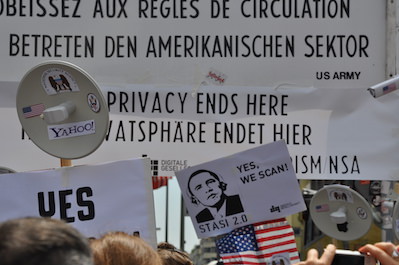 Maintaining privacy in the age of surveillance is a global challenge. (Digitale Gesellschaft / CC BY-SA 2.0)
Maintaining privacy in the age of surveillance is a global challenge. (Digitale Gesellschaft / CC BY-SA 2.0)
7:01 p.m. PST: That’s all, folks. Go in peace. Let freedom reign. And follow the immortal wisdom of George Carlin and question everything.
If you want to watch a video of the conversation on privacy with Noam Chomsky, Glenn Greenwald and Edward Snowden, click here.
7:00 p.m. PST: Last word from Noam Chomsky: What Edward Snowden and Glenn Greenwald have done is great for democracy, and they should be lauded for that. Sustained applause from the crowd, followed by a standing ovation.
6:58 p.m. PST: Greenwald also would do it all over again. You cannot shine the light in dark places enough. We cannot start enough debates on the abuse of power, the value of privacy. No matter how powerless you think you are in the face of injustice, all individuals have the power to stand up to the most powerful institutions. More people will be inspired by Snowden to reveal things that should not have been concealed in the first place.
6:57 p.m. PST: Snowden would have done it again. And he wouldn’t have waited as long.
6:52 p.m. PST: Should we be rethinking the Fourth Estate? Chomsky says we should pay close attention to the way the media frames, analyzes and presents materials to us.
He suggests reading the original introduction to “Animal Farm” for insights into the freedom of the press. It was initially suppressed and remained unpublished for 30 years, and then later discovered. In the introduction, George Orwell says the book is addressed to the people of England and is a satire on the totalitarianism in England. The press is owned by wealthy men who don’t want certain ideas to be known. The other danger is education: A framework of obedience is built into us. Look at the newspapers of the day, in any country, today. What parts of the story have not been reported?
Regarding the concept of objectivity in journalism: Tell the truth about what is happening within the Beltway. Saying what the Democrats are saying, saying what the Republicans are saying—is that the current definition of objectivity? What is not objective is what is significant. It’s not just government secrecy that prevents us from seeing what is going on in the world, it is our own obedience to conformity. Like a good education. We should be cautious about that, warns Chomsky.
6:50 p.m. PST: “The [National Security Agency] gets around encryption every day of the week. And twice on Sundays.” Quote of the day from Snowden.
6:47 p.m. PST: Snowden makes recommendations for privacy: Use TOR to hide and protect general online activities from corporate and government agents. Signal is another good app for encryption.
6:42 p.m. PST: Metadata are the activity records for phones. Snowden says the FBI already has the activity records of the San Bernardino killer and knows there was no activity with other terrorists before the murderous rampage. What happens when a culture of unaccountability takes hold in our government? What happens when everything we do becomes transparent, while the activities of privileged members of society become opaque?
6:40 p.m. PST: The world Orwell is talking about in “1984” is not one in which people are being watched all the time. That world is one in which people could be watched at any moment. One in which there never is a moment when you can communicate beyond the reach of the surveillance arm of the government. That is the FBI case against Apple.
6:38 p.m. PST: Greenwald says the FBI’s case against Apple is pure deceit. It wanted to create a precedent: Apple would be forced into involuntary labor to create a backdoor anyone could use. The NSA’s motto is: Collect it all. Not collect a lot of it. It wants to be able to collect and store all communications between humans in the world and eliminate privacy in the digital age.
6:36 p.m. PST: Encryption, Apple and FBI: Our networked world gives anyone the potential for power. Common people can have important secrets.
6:31 p.m. PST: Snowden says the Brussels attacks were preventable. Turkish authorities were aware of one of the people engaged in the bombings and let the Belgian authorities know, but they didn’t act on the information. The same thing happened with one of the Boston Marathon bombers. Russian authorities alerted U.S. authorities of the danger of one of the Tsarnaev brothers, saying he had been radicalized. No actions were taken. Why?
6:26 p.m. PST: Greenwald has a request: Google 2004 Rumsfeld Report on Terrorism. The report asked why there are so many people who hate the United States so much. They hate us for our policies. The report repeats what we should know. We shouldn’t have to read documents.
6:24 p.m. PST: Is mass surveillance about keeping us safe and free from terror, or is it about something else?
6:21 p.m. PST: Mass surveillance, suspicionless surveillance: Greenwald says that many of the top-secret documents he has seen have little to do with national security. The information is more like spying for diplomatic advantages. Little of the apparatus is devoted to terrorism.
6:17 p.m. PST: The talk turns to terrorism and the Brussels attacks. Chomsky notes the response of Islamic State: As long as you keep bombing us, we will keep bombing you. Think about that. Peace begets peace. War begets war. War is good business, for some.
Why do people turn to terrorism? They grow up in miserable environments, without hope, subjected to atrocities. Young people want a future and dignity, something they cannot find in their societies. Radical Islam gives them a cause.
6:14 p.m. PST: When it comes to the release of classified information, GCHQ, the U.K. version of the NSA, is most concerned that “damaging public debate” can lead to legal proceedings, not about danger to citizens. It’s the old cover-your-butt approach.
6:13 p.m. PST: The big problem with government these days is its loss of the people’s trust.
6:09 p.m. PST: Don’t let them change the subject. Changing the subject is what the powers that be are doing when they argue over whether media outlets have the right to expose top-secret documents. Instead of talking about freedom of the press, we should be evaluating the details of a government operation.
6:08 p.m. PST: Vacation schedules, requests for time off—these are things that have been classified as “top secret.” That is wrong.
6:05 p.m. PST: Snowden talks about journalism: In the WikiLeaks model of journalism, 750,000 State Department cables were published and no one died. Are we classifying too many things? Have we lost sight of what a life-threatening secret is?
6:00 p.m. PST: The Internet is one of the most important tools in human history. It could be a tool of liberalization or a tool of coercion and control. The government made a choice to use the Internet for actions that, it could be argued, were not aboveboard. We have an illusory democracy, says Greenwald. When he saw “top secret” on the Snowden documents, Greenwald wanted to publish the NSA documents as fast as he could. “Top secret” did not make him hesitate. He did not appreciate officials’ arrogance and lack of transparency. Why should a few make decisions that impact millions, even billions, of people without input from any of those affected?
5:59 p.m. PST: State secrets: Should we have them?
5:56 p.m. PST: Chomsky uses a metaphor to describe the importance of privacy by citing French philosopher Blaise Pascal, who said the root of man’s misfortunes is the lack of a room where one can sit quietly and undisturbed. Chomsky doesn’t like social media. His grandchildren use them, but he doesn’t. He thinks social media is kind of unhealthy. It leads to fraudulent intimacy.
5:54 p.m. PST: Encryption and FBI and Apple are on the horizon. The lines are blurring for data held by corporate actors and data held by the government.
5:51 p.m. PST: Should our government be omniscient? That has value, of course, in thwarting nefarious and criminal behavior. But the public has a right to know if the government is going to be omniscient. As it stands, this decision has been made by a few people behind closed doors. That is the problem.
5:49 p.m. PST: The problem is that surveillance happens indiscriminately. As long as the NSA or any agency can access telecommunications, they can get the metadata of anyone—whom you call, where you go, what you do. The diary of our lives.
5:48 p.m. PST: Now that people realize privacy is being threatened, they are beginning to care more about protecting it.
5:42 p.m. PST: What is privacy today in the modern context? It means different things to different people. For some, it’s just Facebook settings. For others, it’s much more complex. Snowden cites “The Right to Privacy” by Louis Brandeis and Samuel Warren. In the 1890 essay, Brandeis says it’s the right to enjoy the products of our own intellect. Privacy is the fountainhead of all things. Privacy is the right to self. Privacy is the right to a free mind. Freedom of thought is the foundation of all other freedoms. Freedom of speech has no meaning if you don’t have the freedom to think. The protection of the private realm is the foundation of individual freedom in the modern age.
5:41 p.m. PST: Government needs to demonstrate that there is a compelling reason for invading privacy.
5:38 p.m. PST: People who say they don’t value privacy are not being honest. Everybody has something to hide. Greenwald likes to run an experiment with people who say they “have nothing to hide”:
Here’s my email address. Email me all of the passwords to all of your email and social media accounts. I just want to troll through and publish things under your name. If you have nothing to hide, that shouldn’t be a problem.
Greenwald has not received any emails yet.
5:36 p.m. PST: Privacy is protected in the Constitution, but the word used is not “privacy.” Greenwald, a constitutional lawyer, returns to Colonial days to add some context to the discussion.
5:35 p.m. PST: Question authority. That is the worldview of Chomsky.
5:33 p.m. PST: Chomsky cites the Age of Enlightenment and says any form of authority, domination and hierarchy must be assumed to be illegitimate. Authority has to demonstrate that it is credible and justified. The burden of proof is on the state—and it is high. The only kind of surveillance that is justified is when the powerful force proves that wrongdoing has been done and surveillance is warranted.
5:28 p.m. PST: Snowden explains how he sees his role in the privacy debate. A nation is composed of people. We all have the right and responsibility to alert people of wrongdoing. There are checks and balances, but government powers have increased. We have reached a point where the individual is all that can be relied upon. But we don’t want an individual citizen to be the last safeguard.
Snowden notes that the NSA was not honest about what it was doing.
James Clapper, director of the NSA, is shown in a video at a hearing on Capitol Hill. Clapper says the NSA does not do surveillance on Americans. We now know that was false. Clapper explained his lie by saying he had forgotten about the NSA’s program that was monitoring citizens. The video draws a laugh from the audience.
5:26 p.m. PST: “Whistleblowers are chosen by circumstance.” —Edward Snowden.
5:24 p.m. PST: Greenwald, a journalist, views himself like any other citizen. He begins with a history lesson—the founding of America and freedom of the press. The core of his job is to make certain that the people who wield the greatest power meet scrutiny. It is essential to push back against power. Greenwald’s mission is to make life difficult for the powerful.
5:20 p.m. PST: Self and state, boundaries of corporate interests: Chomsky starts with the commercialization of the Internet, an interesting phenomenon. The Internet was intended to be a free, open means of communication. It was intended for scientists to exchange ideas freely, and then the general public. It was hoped it would democratize information. Once it became commercialized, that changed. There are systems of unaccountable power—some of them private, some of them governmental. They don’t care about democracy and have shaped and molded the system. Technology is neutral. It can be used for good or evil. It’s up to us to determine what the future holds. Recognize the forces that will attempt to shape and mold for their own purposes.
5:19 p.m. PST: No live questions from the audience, but questions have been crowdsourced from the TwoShoes app and on social media.
5:16 p.m. PST: Snowden joins us remotely via satellite from an undisclosed location in Russia. He will be the subject of a new political thriller directed by Oliver Stone.
5:15 p.m. PST: Give it up for Chomsky. The most cited living author.
5:14 p.m. PST: Greenwald is in the house. The activist, journalist and lawyer needs no introduction.
5:12 p.m. PST: Welcome, Nuala O’Connor. She is president and CEO of the Center for Democracy and Technology and is an internationally recognized expert in Internet and technology policy. At the U.S. Department of Commerce, she served as deputy director of the Office of Policy and Strategic Planning, chief privacy officer and chief counsel for technology. She also was the first chief privacy officer at the Department of Homeland Security. Impress your friends with that last fact.
5:09 p.m. PST: Don Bennett Moon Foundation is underwriting this event.
5:08 p.m. PST: Go time.
5:01 p.m. PST: The conversation is about to begin. We don’t expect the wait to be as long as some voters had in Maricopa County this week. Some people had to wait as long as five hours. Voter suppression or human error? You make the call.
4:35 p.m. PST: What is the proper balance between national security and individual rights? That question has been on the minds of many people since 9/11 and the passing of the Patriot Act.
With the rise of government surveillance and growing concerns about maintaining personal privacy (see: Apple vs. FBI), the debate isn’t quieting down.
On Friday at the University of Arizona, political activist and Massachusetts Institute of Technology professor Noam Chomsky, NSA whistleblower Edward Snowden and The Intercept co-founding editor Glenn Greenwald will discuss the subject of privacy in a panel organized by the Center for Democracy and Technology (CDT). Nuala O’Connor, president and CEO of CDT, will moderate.
The event starts at 5 p.m. PT and will be live streamed on The Intercept.
We will be live-blogging the conversation on Truthdig.
Your support matters…Independent journalism is under threat and overshadowed by heavily funded mainstream media.
You can help level the playing field. Become a member.
Your tax-deductible contribution keeps us digging beneath the headlines to give you thought-provoking, investigative reporting and analysis that unearths what's really happening- without compromise.
Give today to support our courageous, independent journalists.
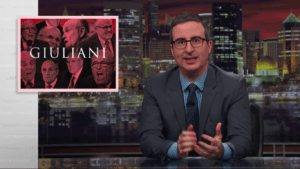
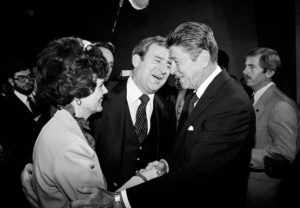

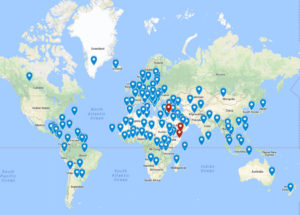
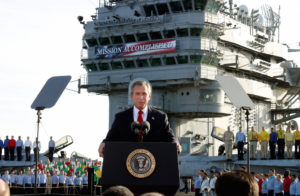
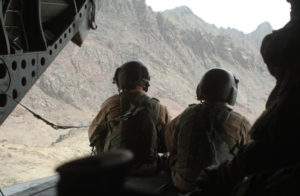
You need to be a supporter to comment.
There are currently no responses to this article.
Be the first to respond.